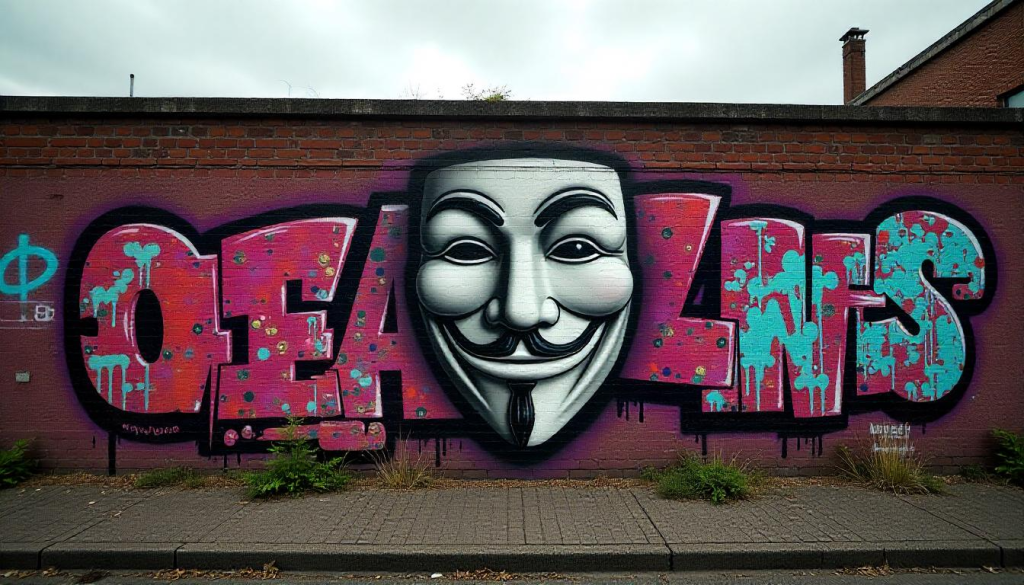The hacktivist collective known as Anonymous has gained global attention for launching cyberattacks against major organizations and governments. But one question that often arises is: Has Anonymous ever attacked the U.S. government? The short answer is yes—and more than once.

This article dives into some of the most well-known incidents where Anonymous took action against U.S. government agencies, explaining the reasons behind these attacks and what they hoped to achieve.
1. Targeting the U.S. Sentencing Commission (2013)
In early 2013, Anonymous made headlines by taking over the website of the U.S. Sentencing Commission. Instead of the normal homepage, visitors were met with a message from Anonymous criticizing the country’s legal system. This attack was part of their protest against the treatment of Aaron Swartz, a young internet activist who died by suicide while facing serious federal charges. The group even claimed to have encrypted sensitive files they could release unless demands were met.
2. Operation AntiSec and Military Email Leak (2011)
Under the banner of Operation AntiSec, Anonymous—alongside another group called LulzSec—carried out several major cyberattacks. One of the most notable involved Booz Allen Hamilton, a government contractor. Hackers broke into their systems and published around 90,000 military email addresses and passwords. This was a clear message against the U.S. defense and surveillance industries. They also hacked into the Arizona Department of Public Safety, revealing personal and confidential data of law enforcement officials. This attack was driven by opposition to Arizona’s tough immigration laws.
3. CIA Website Knocked Offline (2011)
In another daring move, Anonymous affiliates launched a Distributed Denial of Service (DDoS) attack on the public website of the Central Intelligence Agency (CIA). The website was forced offline temporarily. While no sensitive data was reportedly stolen, the attack was meant as a statement against government secrecy and power.
4. Federal Trade Commission Website Defaced (2012)
Anonymous also took aim at the Federal Trade Commission (FTC) in 2012. In protest against international copyright laws like ACTA, the group defaced FTC websites and posted protest messages, including a video. They also claimed to have accessed and exposed data from FTC servers.
5. HBGary Federal Hack and Email Dump (2011)
When a cybersecurity firm called HBGary Federal tried to identify members of Anonymous, the collective retaliated. They breached the company’s systems and dumped more than 60,000 internal emails online. These emails revealed controversial plans to undermine whistleblower platforms like WikiLeaks and even target journalists. This attack embarrassed several organizations working with the government.
6. Data Leak from the Bureau of Justice Statistics (2012)
In May 2012, Anonymous claimed responsibility for hacking into the Bureau of Justice Statistics, a division of the U.S. Department of Justice. They released over 1.7 GB of data, including emails and internal documents. The hack was part of their broader campaign, “Monday Mail Mayhem,” to expose flaws in government systems.
7. Federal Reserve Breach (2013)
One of the more mysterious cases involved a breach of the Federal Reserve. Anonymous claimed to have accessed and released confidential data from the central bank’s systems. Although the Fed later acknowledged a “temporary vulnerability,” the exact scope and damage of the attack remain unclear.
Why Does Anonymous Target Government Agencies?
Anonymous doesn’t follow a single leader or group structure. Instead, it’s a loose, decentralized movement united by shared causes such as freedom of speech, digital rights, and anti-corruption. Their attacks on the U.S. government are often motivated by:
-
Opposition to mass surveillance
-
Criticism of government overreach
-
Support for digital activism
-
Defense of whistleblowers and open information
They use tools like DDoS attacks, data leaks, and website defacements not for profit, but for protest.
The U.S. Government’s Response
Federal agencies take cyber threats seriously. Over the years, several people linked to Anonymous have been arrested and charged under cybercrime laws. The government has increased its investment in cybersecurity and surveillance to prevent similar attacks in the future. Despite these efforts, the decentralized nature of Anonymous makes it difficult to completely stop their activities. As long as there’s a cause they feel strongly about, Anonymous is likely to remain active.
Final Thoughts
So, has Anonymous ever attacked the U.S. government? Absolutely. From leaking military data to disrupting agency websites, they have made their presence known. These actions are often seen as digital protests rather than simple hacks. Whether you see them as cyber-vigilantes or digital criminals, one thing is clear: Anonymous has changed the way governments think about cybersecurity, activism, and online resistance.